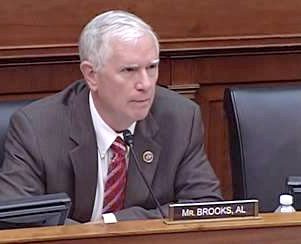By Jim Ellis — Friday, Nov. 24, 2023
House

Rep. Ilhan Omar (D-Minneapolis) again faces a serious primary challenge. / Photo by Gage Skidmore
The “Squad,” identified as Reps. Ayanna Pressley (D-MA), Rashida Tlaib (D-MI), Ilhan Omar (D-MN), Cori Bush (D-MO), Alexandria Ocasio-Cortez (D-NY), Jamaal Bowman (D-NY), and Summer Lee (D-PA), are the members who’ve drawn AIPAC’s ire. If split evenly, the $100 million commitment translates into more than $14 million per district — a substantial amount of money.
Each of these members represent safe Democratic seats, so if they are to be defeated it will be in their respective Democratic primaries. All of their districts, with the exception of Rep. Lee’s Pennsylvania seat, fall into the range of D+40 to D+73 according to the FiveThirtyEight data organization. Rep. Lee’s Pittsburgh-anchored district is rated D+15. President Joe Biden carried the six most Democratic of these seats with percentages ranging from 71 thru 86. The president recorded a 59-39 percent victory margin in Rep. Lee’s CD.
Since AIPAC wants to spend this kind of money, they will have no choice but to operate through a Super PAC and operate independently with no coordination or communication between their organization and any candidate. In addition to running an attack campaign against their targets, they also could promote positive messages for Squad opponents so long as they don’t coordinate with the campaign.
The fundamental question, however, is whether any of these members are vulnerable to a primary challenge, even with opponents who will have substantial resource backing. It appears some could be on the precipice of losing.
Minnesota’s Rep. Omar is the most notable and seemingly the most vulnerable of the Squad members. In 2022, former Minneapolis City Councilman Don Samuels held the congresswoman to only a 50.3 – 48.2 percent win. In that election, Rep. Omar outspent Samuels, $3.22 million to $1.38 million. In the coming 2024 August primary, considering AIPAC’s large investment, the resource balance will likely turn heavily against the incumbent.
Rep. Bush also has a credible opponent. In the past month, former St. Louis County prosecutor Wesley Bell left the Senate race and declared himself a Democratic primary challenger to Bush. In 2022, Rep. Bush faced four Democratic opponents, including state Sen. Steve Roberts (D-St. Louis) but easily won renomination with 69.5 percent of the vote. Both she and Sen. Roberts spent just under $500,000 on their races. Here, such a large influx of campaign resources against Rep. Bush would significantly help Bell.
Rep. Bowman is the other Squad member who currently faces a serious primary challenge. Westchester County Executive George Latimer is indicating that he will enter the congressional primary. In his current position, Latimer represents almost 91 percent of the 16th Congressional District constituency. Prior to winning his countywide office, Latimer served in the New York Senate and Assembly. Therefore, he is no stranger to running for public office and winning his elections.
Bowman came to office in 2020, defeating veteran Congressman Eliot Engel in the Democratic primary. Now, particularly with serious resources coming into the district, Rep. Bowman could quickly find himself in a similar position as did then-Rep. Engel.
Rep. Lee also may be in trouble for renomination. She won her 2022 Democratic primary with only a 41.9 – 41.0 percent margin over attorney Steve Irwin. In the general election, she under-performed the district’s vote history in attaining only 56.2 percent of the vote. Some of that could be attributed to her Republican opponent’s name, Mike Doyle. The Democratic Mike Doyle had represented the congressional district for the previous 28 years.
Currently, Edgewood Borough Councilwoman Bhavini Patel is the only announced Democratic candidate against Rep. Lee. She entered the open race in 2022 but withdrew before candidate filing expired. Running next year with plentiful anti-Lee resources flowing into the district could make Patel a serious candidate. PA-12 is the only district of these seven that might be competitive in the general election, though a Republican winning here would still be a long shot. Republican Mike Doyle is a possibility to return.
At this time, Reps. Ocasio-Cortez, Pressley, and Tlaib, have no declared Democratic opposition, but the AIPAC announcement could stir certain individuals in these districts toward action. The most difficult of these members to defeat would likely be Rep. Ocasio-Cortez. A prodigious fundraiser (Sept. 30 cash-on-hand disclosure: $5.4 million), she would likely be able to match the AIPAC dollar effort and whatever money an opponent could directly raise.
Considering the AIPAC effort, these seven members are guaranteed to face an onslaught of activity, which certainly adds more intrigue into this highly combative election cycle.






